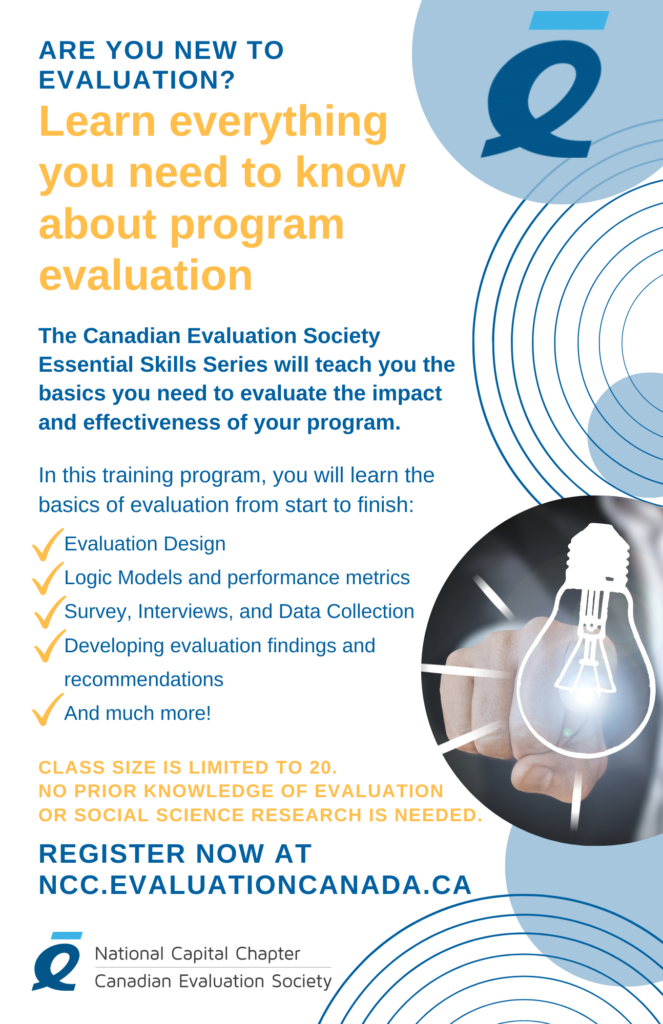Learning Opportunity Fund
More information about the Fund is available on the Fund’s application form.
Essential Skills Series
Virtual, English Course
April 7 to May 17, 2026
Virtual, English
Register here for the April to May, 2026 series
Please download the April to May, 2026 series registration form hereThis virtually facilitated Essential Skills Series will consist of five synchronous sessions held over zoom, and 10 self-paced modules completed through the E-Institute platform. The 60-minute synchronous sessions will include a presentation, special guests, and opportunities for Q&A. The course will be delivered in English.
This session will be facilitated by Evan Green, Baastel.
THIS COURSE IS DESIGNED FOR THOSE WHO ARE NEW TO EVALUATION.
We will be limiting group size to 20 to ensure maximum benefit to participants.
The Essential Skills Series was completely re-designed in 2014 by the Canadian Evaluation Society incorporating state-of-the-art thinking and modern adult learning principles.
Prior knowledge of evaluation, or of social science research methods, is not required, and this course is geared towards individuals who are new to evaluation. On completion, participants to this four-day course will be equipped to enter and participate in the evaluation field and to develop as evaluation professionals. Graduates will be able to describe in basic terms 28 core evaluation concepts – from the uses and benefits of evaluation through common data collection methods to evaluation ethics and standards – and will gain elementary experience in six core practices – from creating logic models to writing findings statements.
Here’s an overview of the topics discussed in this course:
- Foundations of evaluation
- Evaluation objectives and roles
- Program profiling
- Evaluation questions
- Evaluation indicators
- Common research methods
- Evaluation design
- Data collection
- Data management and analysis
- Synthesizing evidence
- Communicating evaluation findings
The courses and handout material will be in English only

